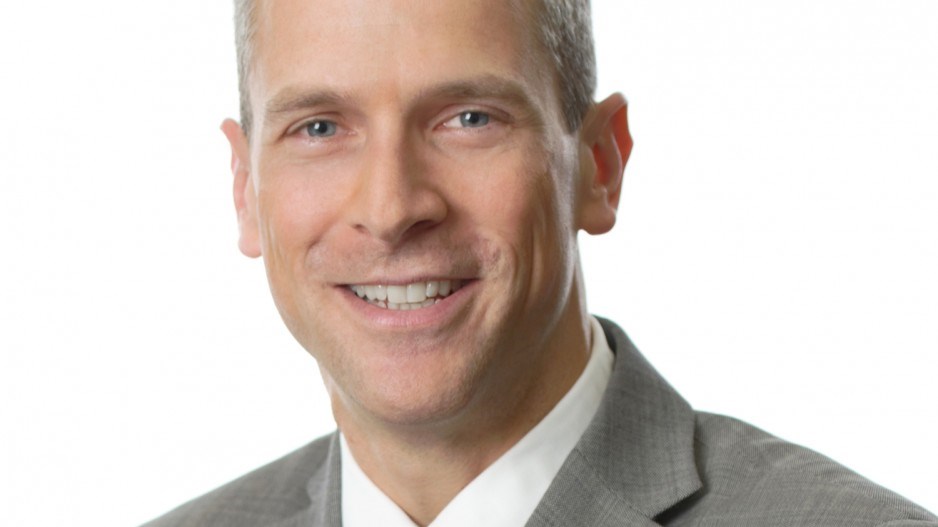A decade ago, David Diebolt lived to work. He had just got a new position at a mid-sized professional accounting firm and was determined to make his mark.
“As a student growing up and grooming yourself to be a professional, you're wired to think, ‘okay, I have to live, eat and breathe the firm,’” he said. “There was always this feeling that you could be doing more work, billing more and adding more to the bottom line.”
Now a partner at Manning Elliot LLP, the work environment has quickly changed — as the founding partners began to retire from the firm, the average age of the Vancouver-based firm dropped from 57- to 47-years-old. Since becoming a partner, Diebolt has helped to revolutionize the way the company thinks about work, and in so doing has ushered in a flexible working environment on par with a progressive Silicon Valley tech company.
The changing face of work
Since the 1970s, the percentage of Canadian families with two working parents has nearly doubled. By 2016, Statistics Canada reported that nearly two-thirds of those that said they were unhappy with their work-life balance blamed the fact that they didn’t have enough time for family.
At the same time, a tidal wave of technology has transformed nearly every aspect of the way businesses operate. As automation threatens to wipe out a variety of professions, many mid-sized businesses are finding it increasingly hard to attract highly-skilled professionals.
“People view their employers differently today than they did say 10 or 15 years ago,” said Diebolt. “They want the ability to take advantage of technology and flexible work arrangements. People want the flexibility to travel, work remotely, and find a work schedule that fits with their lifestyle.”
Even in an expensive city like Vancouver, it’s not all about money. Diebolt is leading an effort to change his firm’s work culture by blending competitive pay with professional development and a healthy work-life balance. That way, new employees can take advantage of everything the city has to offer.
It started with “flex-days” — during the summer you only worked four days a week. Soon employees could take those days off anytime they wanted. Then the company added the ability to work remotely and opened up the dress code.
“Ultimately, I see us getting to a point where we're using technology to attract people working in remote communities,” said Diebolt. “People looking for work wouldn’t necessarily have to come into downtown.”
For two seasons, Diebolt has gotten in over 50 days of skiing each year, all while co-running a not-for-profit youth cycling club (Brio Cycling) that takes kids on long rides across the North Shore. But he still felt stretched between work, family and a gnawing desire to get away from it all. So on July 8, he closed the office, packed the fleet of family bikes, and together with another family, embarked on a 1,800-kilometer cycling trip from Paris to Rome.
Shattering routine
By the time they landed in France, everyone was fit — Diebolt’s flexible work schedule had allowed him to take a leading role in the cycling club throughout the week. But there was one thing he hadn’t counted on.
“I was prepared to ride, but I wasn't prepared to tug a hundred-pound trailer behind me going through the French Alps and through the Tuscany region of Italy. I don't think anybody is,” he said.
In one particularly mountainous stretch of Tuscany, they cycled up and down five peaks as midday temperatures soared to 40 degrees Celsius. Steep belts of road heaved through 20 per cent grades, often little more than footpaths with an asphalt afterthought.
Every day they dismounted their bikes encrusted in a salty patina of sweat. Diebolt would eat three entrees a night to keep on the calories. Then it was off to sleep in a tent — heaven for a family who spends weekends punishing themselves on road bikes.
"The most rewarding part of this adventure was the impact it had on the relationship I have with my wife and kids. You get up and go to work, she gets up and goes to work. You get too comfortable with routine and often things can go kind of flat,” said Diebolt. “So going away for a month with your partner and with your kids, it totally helped rekindled our relationship — it energized us.”
A different kind of firm
A generation ago, taking that much time off work would have proved problematic for his professional career. But walk into the office today and you’ll find a prime example of how a progressive workplace culture not only helps employees feel better, it makes them work better. That has required a shift in mentality, away from the endless pursuit of the bottom line and towards a balance where high performance at work is matched by a rich life.
“If the partners are the hardest working people in the office, we really have no lifestyle to sell,” said Diebolt. “There is no succession plan when no one wants to be doing what we're doing. It is integral in our business to continue to attract the best and brightest. It is on our shoulders to demonstrate lifestyle and importance of family.”




